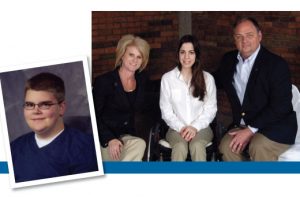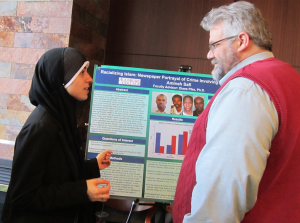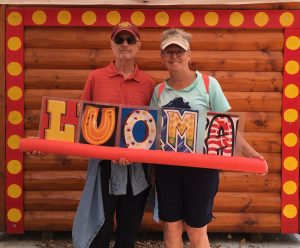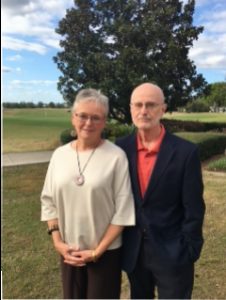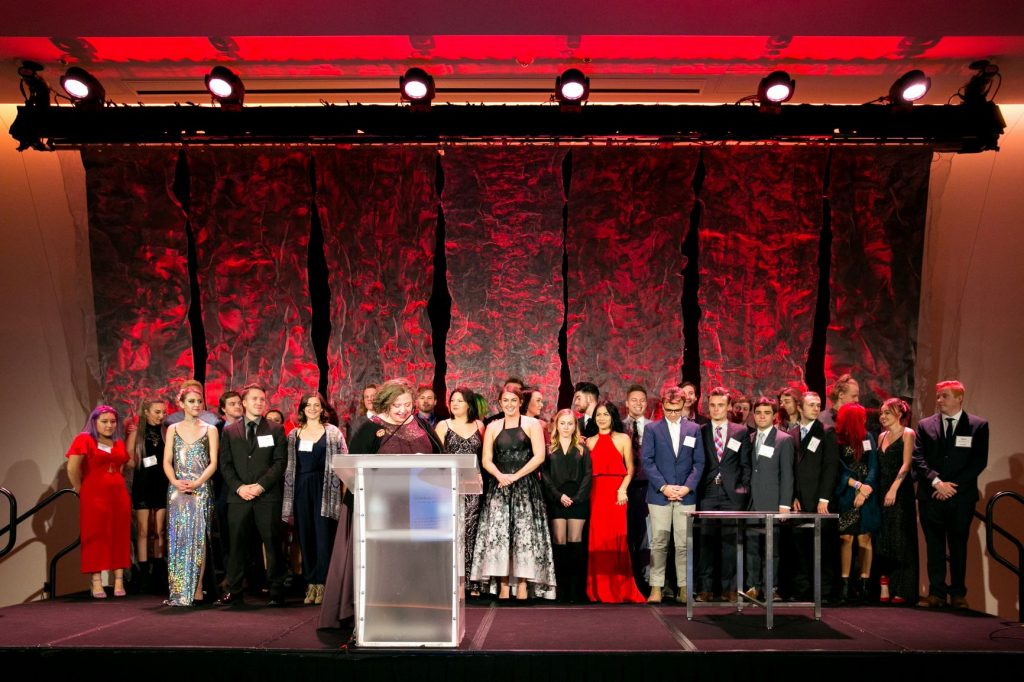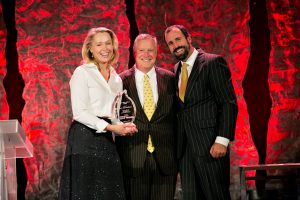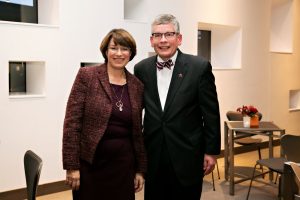
When Augsburg sociology professor Tim Pippert circulated an email last spring inviting his students to apply for a research opportunity in the South Pacific, at least two of them thought of the trip as little more than a fantasy. Yet Briana Mitchell ’19 and Britta Andress ’19 applied anyway.
“It was very random for me,” Andress says about receiving that unsolicited email. But she was intrigued by the fact that whoever was chosen to go to Vanuatu, a nation comprised of about 80 islands that stretch 1,300 kilometers in the Pacific Ocean, could research whatever they wanted. She also knew she would have the whole summer to prepare.
“I was super pessimistic,” says Mitchell, who doubted she would be chosen because she was a “city girl, always doing city things. I’m not very outdoorsy. I’m a scaredy cat, and I’d heard there were spiders the size of dish plates. But when I got chosen and knew I was going with Britta, I figured she would take care of those spiders.”
Thanks to the Torstenson Scholars Program and the ongoing generosity of Mark Johnson ’75, a retired city planner and former president of Sonju Motors in Two Harbors, Minnesota, the two were about to embark on a life-changing, career-molding adventure. Since a chance encounter with the King of Tanna several years ago, Johnson has actively supported various initiatives on the island of Tanna, which was damaged by a cyclone in 2016. A solar project to supply electricity to the island’s 20,000 residents is currently underway.
Last September Mitchell and Andress, accompanied by Pippert and Johnson, flew nearly 30 hours to reach the island some call the “happiest place on earth.” For Mitchell, it conjured images of Jamaica, where her mother grew up. “When we got there, it had this paradise feel. Everything looked very good. The people were extremely happy, personable, and introduced themselves immediately.” As a black woman traveling abroad, she also noted, it was nice to be the one who fit in.

It wasn’t long, however, before the budding sociologists realized that solar lighting and happiness were not the topics that most interested them or their hosts. “Gender dynamics was a big issue. Behind this happiness were a lot of problems, so we decided to focus on the smaller ones and how they contributed to the larger ones,” Mitchell says. A female translator was secured so the island women could speak freely about their lifestyle and culture.
Life in Tanna is “drastically different. There is no agenda, and the pace is very laid back—they call it Tanna time. They don’t have an official economy and everything is free,” says Andress, describing a system known as cargo cult, where islanders depend on donations they believe will show up as needed.
The researchers conducted 26 interviews, exploring everything from medical care to food preparation to the ritual daily consumption of kava, a hallucinogenic beverage for men only. They questioned how solar lighting might impact women whose workdays were already long, and whether harsh, unsanitary childbirth conditions could be improved. They identified 13 themes in the study they will present at the Midwest Sociological Society conference in Chicago in April.

“Because of how fast it went and the amount of information we absorbed in those days, I now see everything through a more critical lens,” says Andress. Her experience has impacted how she interviews people, how she frames questions, and how she evaluates the research itself. “I see how vital it is, and I developed skills I knew I needed.”
Johnson understands completely. “I had the good fortune to participate in Joel Torstenson’s first Scandinavian Urban Studies term when I was a student at Augsburg. That experience was transformational, opening my eyes to a global context that has shaped my life,” says Johnson, who was named to Augsburg’s Board of Regents in 2018. “I’m interested in making sure that today’s Auggies have the same opportunities.”
“It was an amazing opportunity, and so kind of alumni to use their own time, effort, and funds to support students like me, who hadn’t done research or traveled abroad,” says Mitchell. Even simple things—like the gift of a six-foot-tall stick of sugar cane, which she hadn’t sampled since visiting Jamaica as a young teen—made the visit “a wonderful experience” that also prompted a closer connection with her mom. She hopes to return one day.
“It’s surreal that it even happened, and it’s something I will always reflect on,” she adds. “I was living my best life there. It feels like a dream, still.”

